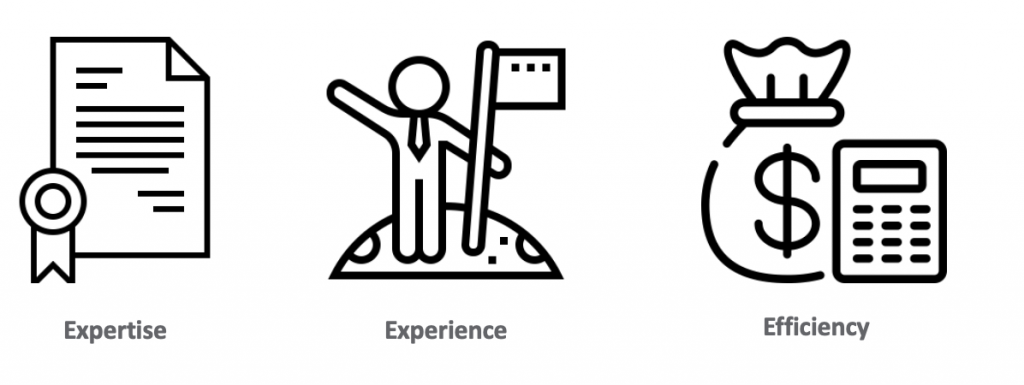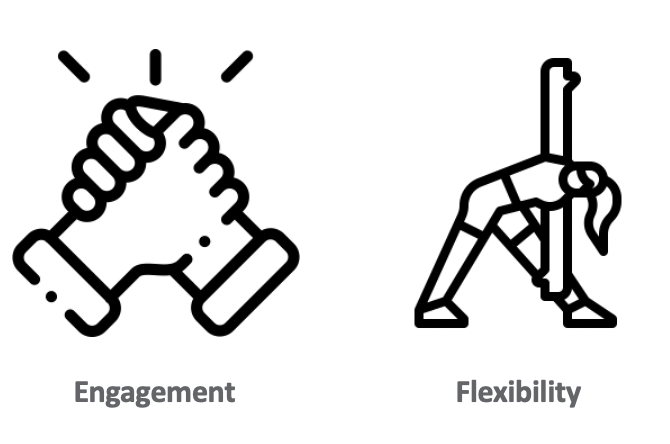How to choose a TMF services partner
Now that you have chosen an eTMF for your organization (hopefully following the advice in my post about how to choose the best eTMF system,) you are probably beginning to envision how your team will use the new system to drive improved inspection readiness for your organization. During this phase of the transition to a new system, some organizations realize that they don’t have the time and/or expertise to manage the eTMF in-house. Thankfully for these organizations, they can reduce the uplift in their internal teams’ effort via partnership. In this post, I will outline some of the considerations to keep in mind when choosing the perfect TMF services partner for your organization.
Why might you want to outsource TMF management to a partner?
People hear outsourcing and think about negative things or things they heard about in the news, but outsourcing isn’t a nefarious thing. As a matter of fact, it’s something many of us do. For example, I don’t re-run electrical wires, install a new bathtub; heck, I don’t even mow my own lawn anymore. Why? Because others can do it much more efficiently and effectively than I can – and I want to focus my energy on other activities.
Pharma companies do the same thing – they exchange $$ in return for execution of activities they either can’t or don’t want to perform en masse. There tend to be three main reasons they choose to partner with an organization and they are listed below:

What TMF management activities you can outsource

Planning/Administration
As discussed previously, the first step towards becoming inspection readiness is to create the framework for the study. This generally includes the following activities:
- Creating the study and adding countries and sites
- Assisting with study-level TMF Plan authoring
- Tweaking the standard structure/inventory of content for that study
- Defining content expectations for the study, countries, and sites
- Assigning team members to the study
While many of these activities can be performed rather quickly using a modern eTMF solution, they do require effort. In particular, items #2, 3, and 4 require a team member familiar with the protocol and regulatory expectations. In larger organizations, this activity is run by a dedicated TMF Manager/Specialist with the support of a study team member. In a smaller organization, the option to augment internal resources with external expertise is very appealing.
Doc Processing
For most organizations, the bulk of document processing (collection, uploading, indexing, QC, etc.) is performed by their CRO partners. When the CRO hosts the TMF, this activity is oftentimes unseen and unexamined. When a Sponsor brings the eTMF in-house, they have access to more data which sometimes questions how well the CRO performs these tasks. This sometimes causes a Sponsor to evaluate whether bringing in some of these activities (indexing and QC) can lead to better quality. Additionally, a subset of content is generated internally and needs to wind up in the eTMF, and a smaller clin ops team may not have the capacity to process even this amount of content. This is where many of the TMF service providers excel.
TMF Governance/Oversight
While processing content is the activity that many Sponsors think about when they debate outsourcing TMF activities, services providers can provide support for activities that a CRO and Sponsor are likely performing already. These include:
- Assessing ongoing study TMFs for completeness and accuracy/quality
- Running reports and identifying trends and assisting with process/training enhancements
Most of the top-tier eTMF systems can provide easily accessible information via reports and dashboards that can help a study team understand the status of the study. However, the systems require proper inputs around content expectations to render the most accurate information. Ensuring that this data is in the system and following up to remediate issues is where TMF services providers can help.
TMF Inspection Readiness
As a study is wrapping up and an organization is getting situated for a regulatory inspection, there is often a mad scramble to ensure inspection readiness. This scramble often involves chasing after team members (internal and external) and asking them to finish processing content. It also may be performing a secondary QC of the eTMF to increase the comfort level with the TMF. Lastly, it may entail working with the team to create study storyboards or prepping the team for the inspection via audits or mock interviews. Your clinical quality team will likely want to be involved in this activity, but being able to leverage an experienced partner can accelerate these activities.
How to choose the best TMF Services Partner for your organization
Now that we have aligned on what activities can potentially be outsourced to TMF services providers, it is time to come up with a plan on how to choose the perfect partner for your company.
How do partners traditionally get evaluated?
When traditional procurement processes are followed for TMF service providers we see RFIs/RFPs that place on easily quantifiable attributes for a vendor.

Expertise
Organizations obviously want to partner with a vendor that has expertise – nobody wants to hire someone they have to train/educate. This expertise tends to focus on ensuring that the vendor has the relevant expertise in-house to answer questions that may arise or challenges that may be faced. Organizations often verify that a vendor has this expertise by reviewing blog posts (ironic, eh?) or membership in consortiums like the TMF Reference Model committee. This “proof of expertise” proves that an organization has some expertise, but that expertise may be focused/limited to an individual.
Experience
Closely related to expertise is experience with providing TMF services. Just like you wouldn’t want to work with a partner who has to be trained on the basics, you want a partner who has been battle-tested by actively supporting a TMF and positioning it for an inspection. You are wise to choose a partner who has supported clients and applied their knowledge to real-world situations.
Efficiency
Last, we have the aspect that procurement is often most focused on – efficiency. Efficiency is a euphemism for cost. Understandably, you are likely to pay more when a partner/vendor has more expertise and experience, but the degree of correlation is of interest to organizations. The expertise and experience that a partner brings to the table need to overcome the cost…or you are just as well-off hiring some interns to process content for you.
What other factors should you incorporate into your evaluation?

Engagement
As mentioned above, the expertise and experience of a partner are sometimes focused in a small subset of their organization. You want assurance that the team that will engage with you brings the expertise and experience to the project. When selecting a partner, seek confirmation that the team will be staffed with experienced folks who can contribute value on day one. Additionally, depending on your internal staffing model and expectations, where the vendor team members are located may be important. I am not saying that team members in one region are better than others, but geographic proximity may be important based on response times and availability.
Flexibility
I mention flexibility last – not because it is less important, but because I want it to be one of the last things you think about while choosing a partner. Having a partner who is willing to be flexible in terms of their project execution with you is key to success. When I consulted, we always looked at the trinity of change, and I think that paradigm is useful for evaluating the flexibility of a partner:
- Process – is the partner willing to follow your processes and live up to your expectations? Certain vendors have pre-defined processes for processing and QCing content and are unwilling to deviate from that approach. If that process aligns with your expectations, that can be optimal, but if not, make sure you partner with someone who is following your lead.
- People – is the partner willing to adjust their staffing model to align with your needs? Some partners approach every project the same and recommend staffing that reflects that. Their prescribed model may work for you, but depending on your team and your needs, you may need more or fewer resources (and/or levels of management and oversight), and the partner should be able to support that.
- Technology – is the partner willing to use your technology? Most TMF services providers are willing to use any eTMF system out there (and most have experience with all the top systems,) but some vendors are eager to push their own systems, which have been aligned to their processes. If you previously chose an eTMF system, you selected it after serious debate and deliberation. Don’t back down from that decision at the behest of a partner.
Conclusion
As you can see, there is no need to go it alone with your TMF management just because your clinical operations team is streamlined. Similar to the model when the CRO is hosting everything for you, they can still provide resources and handle the bulk of the activity around the eTMF – procuring and processing content. However, by bringing the eTMF in-house, you have shifted some of the administrative work from the CRO to yourself, and that is when a partner can come in. Additionally, regardless of where the TMF is hosted, there are activities that a Sponsor may still need help with – inspection readiness and prep, and these are areas where there are numerous experienced vendors who can assist you. Hopefully, this article sheds some light on how you can choose the best eTMF services partner for your organization, but if you have additional questions or need some recommendations, please get in touch with me, and I will do my best to help you out.

